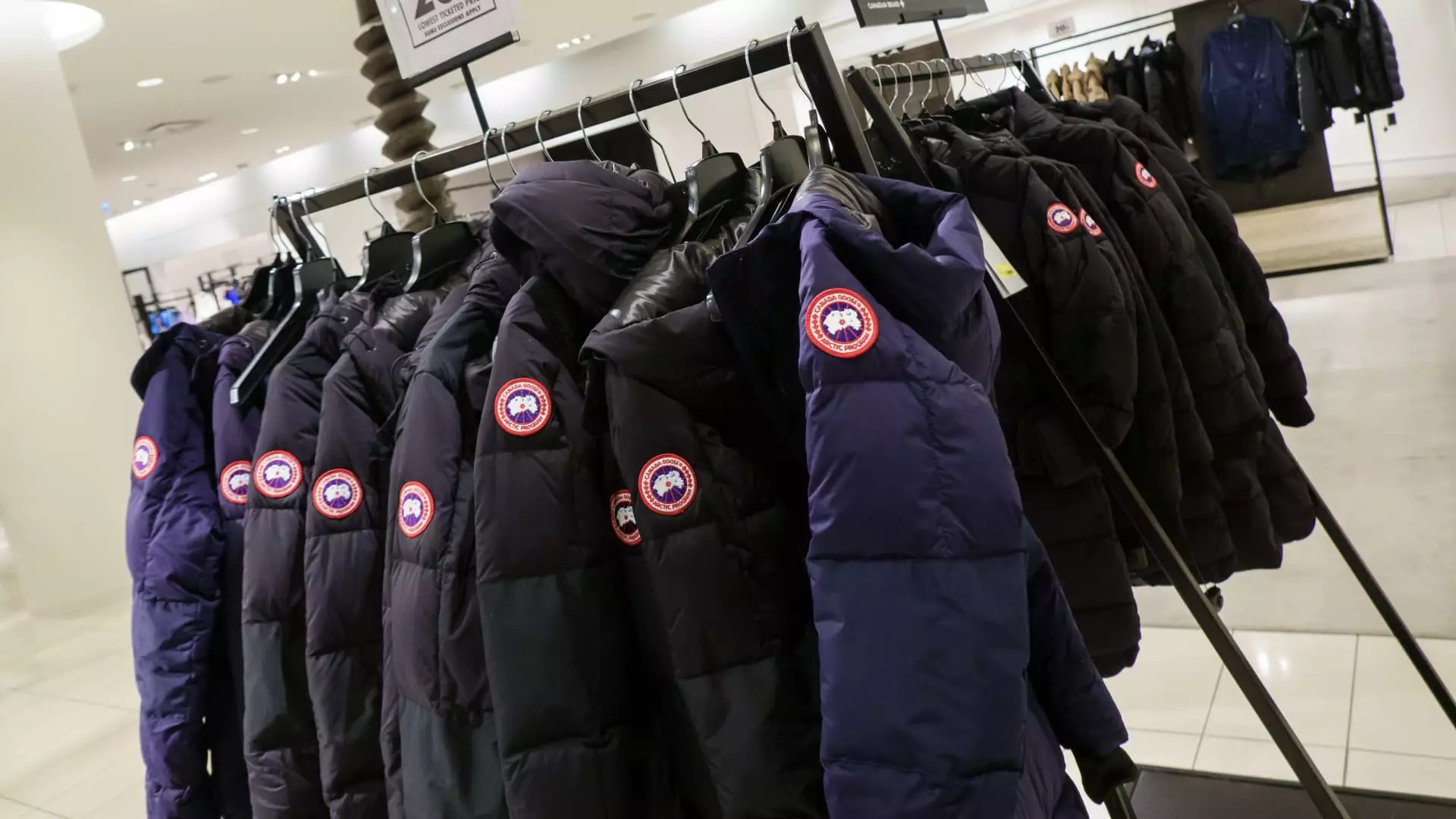Canada Goose’s recent surge in stock value—over 20%—is nothing short of remarkable, especially in an economic climate riddled with unpredictability. The luxury brand, known for its high-priced outerwear, reported fiscal fourth-quarter earnings that surpassed analysts’ predictions. This kind of achievement usually heralds a robust market position, yet it is soberingly countered by the company’s decision to withdraw its fiscal 2026 outlook. This contradiction encapsulates the current state of the luxury retail market, where optimism and volatility coexist in unsettling harmony.
The company’s rationale for not providing future financial guidance centers on “macroeconomic uncertainty” and evolving consumer habits. While logical, this admission casts a shadow over what should have been a triumphant report. A 7.4% increase in revenue compared to the same period last year seems encouraging, but the broader context reveals a worrying trend. The very foundations of consumer spending are shifting beneath established brands like Canada Goose, suggesting that past successes may not guarantee future security.
Brand Resilience vs. Economic Headwinds
Canada Goose’s executives have painted a picture of confidence, claiming the brand’s robust financial standing allows them to navigate uncertain times. COO Beth Clymer assured stakeholders that a substantial portion of their production is domestic, shielded from tariffs imposed by trade policies. Yet, one must ponder whether this reliance on past resilience is wise. Economic indicators have hinted at broader turmoil, raising questions about the stability of not only Canada Goose but also the luxury retail sector at large.
The CEO, Dani Reiss, echoed sentiments of past endurance through economic crises, likening their current situation to turbulence faced during 2008 or the Covid pandemic. History may be an ally, but clinging too tightly to it can be perilous. While confidence is crucial for a leader, it should not obfuscate the immediate challenges ahead. What happens when past resilience gives way to present fragility? The luxury sector, with giants like LVMH and Burberry reporting slowdowns, is no longer a safe haven for brands; it is a battleground.
A Changing Landscape
The luxury retail arena is undergoing seismic shifts. Canada Goose’s attempts to diversify its product line—including the introduction of non-winter gear—are commendable but inevitably fraught with risk. The addition of eyewear, complete with AI-enhanced virtual try-ons, signals a bold step into fresh territory. However, venturing outside the brand’s well-established identity may leave consumers perplexed. Does Canada Goose want to be a luxury outerwear brand, or does it aim to be a comprehensive lifestyle label?
This strategy might dilute the brand’s strong identity, particularly when the perception of luxury is in question. The sad truth is that elite consumers are becoming increasingly selective, and any misstep could lead to significant repercussions. It’s a precarious tightrope to walk; consumers demand both exclusivity and innovation, yet they are unforgiving when brands falter in either regard.
The High-Stakes Game of Consumer Psychology
At the heart of Canada Goose’s conundrum lies a critical lesson about consumer psychology. As luxury shoppers grow more discerning, they increasingly favor brands that resonate with their evolving values—sustainability, authenticity, and cultural relevance. While Canada Goose maintains a narrative around quality and Canadian craftsmanship, these attributes must evolve in alignment with the broader shift in consumer sentiment.
The company’s past reliance on heritage storytelling may lack the punch necessary for today’s audience. Brands like Canada Goose need to navigate their narratives in a manner that acknowledges consumer demands for ethical practices. Failing to adapt could result in alienation from a demographic that no longer sees value in luxury that does not resonate with their conscience.
In this context, one cannot help but critique Canada’s luxury maverick; its recent stock surge feels more like a temporary reprieve than a sustained recovery. It begs the question—can Canada Goose evolve in line with shifting consumer expectations while retaining its brand essence? The stakes are monumental, and time will tell if this luxury brand’s ascent is truly sustainable or merely an illusion in an era defined by uncertainty.

Leave a Reply